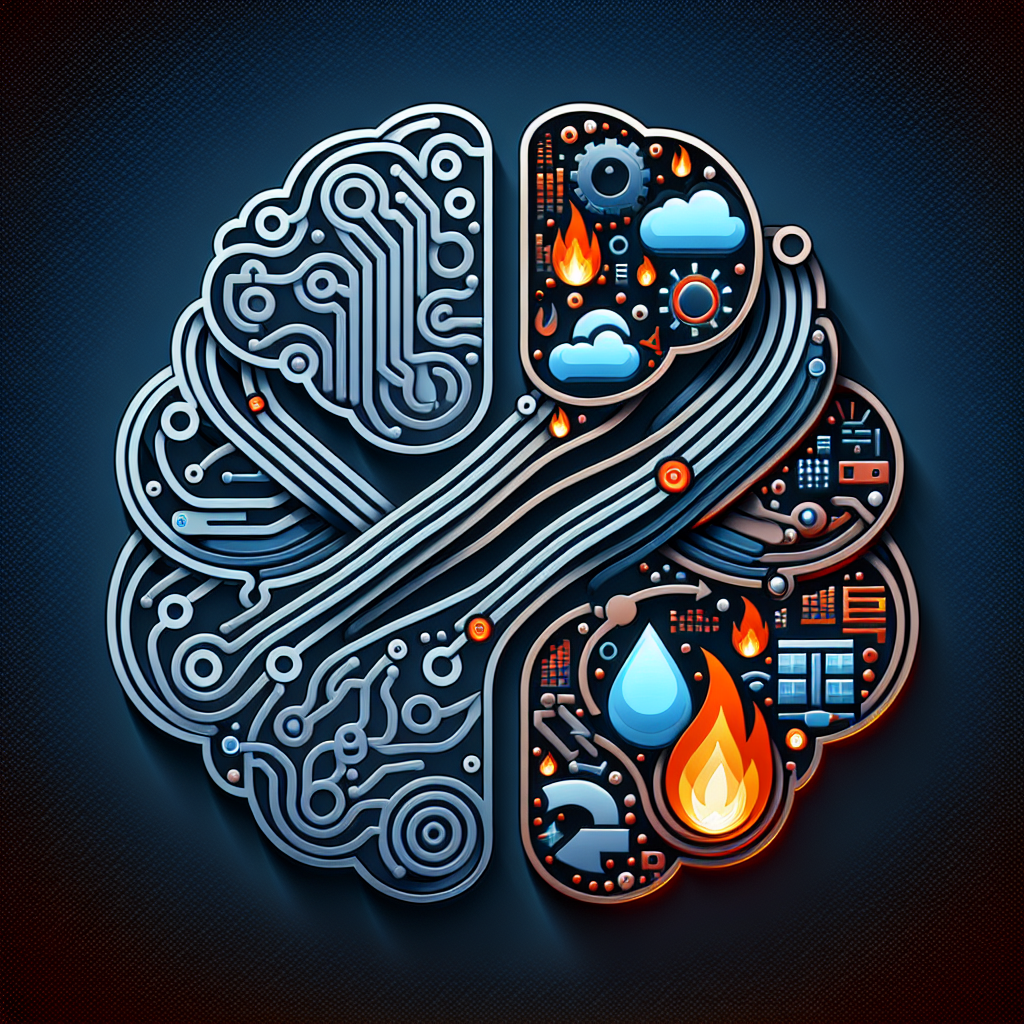In recent years, the use of Artificial Intelligence (AI) platforms in crisis management has become increasingly prevalent. From natural disasters to global pandemics, AI has proven to be a valuable tool in helping organizations and governments respond quickly and effectively to crises. In this article, we will explore the various ways in which AI platforms are being used in crisis management, as well as the benefits and challenges associated with their implementation.
One of the key ways in which AI platforms are being used in crisis management is through the analysis of data. During a crisis, there is often an overwhelming amount of information coming in from various sources, such as social media, news outlets, and government agencies. AI platforms can help organizations sift through this data to identify key trends, patterns, and anomalies that can inform decision-making.
For example, during the COVID-19 pandemic, AI platforms were used to track the spread of the virus, predict hotspots, and analyze the impact of various containment measures. By leveraging AI algorithms, organizations were able to quickly identify areas in need of additional resources, allocate medical supplies more efficiently, and make informed decisions about lockdowns and social distancing measures.
Another way in which AI platforms are being used in crisis management is through the automation of certain tasks. During a crisis, time is of the essence, and organizations need to be able to respond quickly and efficiently. AI platforms can help streamline processes by automating repetitive tasks, such as data entry, analysis, and communication.
For example, chatbots powered by AI can be used to provide real-time updates to the public, answer frequently asked questions, and direct individuals to the appropriate resources. This not only frees up human resources to focus on more complex tasks but also ensures that accurate and up-to-date information is being disseminated to the public in a timely manner.
In addition to data analysis and automation, AI platforms are also being used in crisis management for predictive modeling. By analyzing historical data and real-time information, AI algorithms can help organizations forecast the potential impact of a crisis, identify at-risk populations, and develop strategies for mitigating risks.
For example, during a hurricane or other natural disaster, AI platforms can analyze weather patterns, infrastructure data, and population demographics to predict which areas are most likely to be affected and where resources should be allocated. This can help organizations better prepare for emergencies, minimize the impact on vulnerable populations, and improve overall response efforts.
While the use of AI platforms in crisis management offers many benefits, there are also challenges that organizations must navigate. One of the main concerns is the ethical and privacy implications of using AI to analyze sensitive data during a crisis.
For example, during a public health emergency, organizations may need to collect and analyze personal health information to track the spread of a disease. This raises concerns about data security, consent, and the potential for misuse of personal information. Organizations must establish clear guidelines and protocols for data collection, storage, and sharing to ensure that individuals’ privacy rights are protected.
Another challenge is the potential for bias in AI algorithms. AI platforms rely on historical data to make predictions and recommendations, which can perpetuate existing biases and inequalities. For example, if a predictive model is trained on data that is biased against certain populations, it may inadvertently reinforce disparities in resource allocation and response efforts during a crisis.
To address these challenges, organizations must ensure that AI algorithms are transparent, accountable, and regularly audited for bias. They must also prioritize diversity and inclusivity in data collection and model development to ensure that the needs of all communities are taken into account.
Overall, the use of AI platforms in crisis management holds great promise for improving response efforts, enhancing decision-making, and saving lives. By leveraging the power of AI to analyze data, automate tasks, and predict outcomes, organizations can better prepare for emergencies, allocate resources more effectively, and coordinate response efforts in a more efficient and coordinated manner.
FAQs:
Q: How can AI platforms help organizations respond to natural disasters?
A: AI platforms can help organizations respond to natural disasters by analyzing data to identify at-risk areas, predict the impact of the disaster, and allocate resources more efficiently. They can also automate tasks such as data entry and communication to streamline response efforts.
Q: What are some of the ethical considerations when using AI in crisis management?
A: Some of the ethical considerations when using AI in crisis management include data privacy, consent, bias, and transparency. Organizations must establish clear guidelines for data collection and sharing, ensure that AI algorithms are free from bias, and be transparent about how AI is being used in response efforts.
Q: How can organizations ensure that AI algorithms are free from bias?
A: Organizations can ensure that AI algorithms are free from bias by prioritizing diversity and inclusivity in data collection, regularly auditing algorithms for bias, and involving diverse stakeholders in the development and testing of AI models.
Q: What are some of the benefits of using AI platforms in crisis management?
A: Some of the benefits of using AI platforms in crisis management include faster response times, more accurate data analysis, improved resource allocation, and better prediction of outcomes. AI can help organizations make more informed decisions during a crisis and save lives.
Q: What are some of the challenges associated with using AI platforms in crisis management?
A: Some of the challenges associated with using AI platforms in crisis management include ethical and privacy concerns, bias in algorithms, and the need for transparency and accountability. Organizations must navigate these challenges to ensure that AI is used responsibly and effectively in response efforts.

